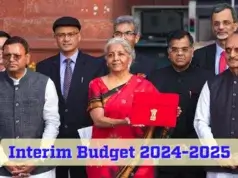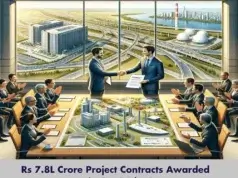 From roadways to airways, ports to airports, and power production facilities, the Indian infrastructure sector has been identified as the most critical prerequisite for sustaining the growth momentum of the economy and the country as a whole, writes Raj Kalady, Managing Director, Project Management Institute, India.
From roadways to airways, ports to airports, and power production facilities, the Indian infrastructure sector has been identified as the most critical prerequisite for sustaining the growth momentum of the economy and the country as a whole, writes Raj Kalady, Managing Director, Project Management Institute, India.
The link between infrastructure and economic development is not a once and for all affair. It is a continuous process; and progress in development has to be preceded, accompanied, and followed by progress in infrastructure, if we are to fulfill our declared objectives of generating a self-accelerating process of economic development,” said Dr. V.K.R.V. Rao, a noted Indian economist, many years back but it still rings so true. There are no second thoughts to the fact that a country’s infrastructure development is directly proportional to its economic growth and vice versa. Spanning from roadways to airways, ports to airports and power production facilities, the Indian infrastructure segment is the thrust for the development of the nation and hence enjoys intense attention from top-grade policy makers of the country.
Infrastructure plays a paramount role in the economic growth of a country. India is one of the fastest growing economies in the world. Consequently, the need for infrastructure facilities is ever growing, across sectors. The development of adequate infrastructure has been identified as the most critical prerequisite for sustaining the current growth momentum of the economy and to ensure inclusiveness of the growth process. Infrastructure investments in India have been growing on a consistent basis. In each five-year plan, the government sets an ambitious target which is higher than the previous one.
It is a known fact that a large number of infrastructure projects in India have been delayed due to regulatory clearances, environmental issues and problems pertaining to land acquisition. Also, there are challenges in the tendering phase that affect viability of projects thus delaying implementation, construction phase is beset with overruns and disputes and last but not the least; provider skills are weak all across the value chain. Given the critical role of infrastructure in ensuring a sustained growth trajectory for India, it is imperative that we identify the core issues affecting completion of infrastructure projects in India and chalk out initiatives that need to be acted upon in short term as well as long term.
Backbone of the country
Given the fact that strong infrastructure facilities form the backbone of a nation’s economy, the Indian government began to shift its focus to infrastructure development, as was evident from the 10th & 11th Five-Year Plans. During this period, the Planning Commission identified inadequate infrastructure as a significant barrier to economic growth. It persuaded the government to undertake initiatives such as public-private partnerships, to draw private sector investments into the infrastructure sector. This move has benefited several infrastructure companies, and has consequently renewed their interest in undertaking large scale infrastructure projects within the country.
The 12th Five-Year plan also promises significant investment in infrastructure sector to bridge the huge infrastructure deficit. The plan is to double the spending to $1 trillion through 2016-17 with 50 per cent of the funding to be met by private sector. Although the sector is considered to be a key driver of economic growth, time and cost overruns threaten to limit the sector’s potential to help achieve the desired growth and ensure efficient capital expenditure.
The government also realises the urgency of meeting skill dearth hence in the 12th Plan, the government has plans to focus on improving the project management skills across country to get better returns from public investment in infrastructure and also in the social sectors. Project management, with a view to deliver on time and within cost, is a learnable capability that can be institutionalised in India. There is, therefore, a pressing need for industry and academia to realise this growing need. Organisations that employ qualified project managers must encourage and support their professional growth. In addition, organisations must start insisting on hiring qualified project managers. This will provide academia the impetus required to introduce project management into their curriculum.
Consistent growth
Infrastructure investments in India have been growing on a consistent basis. In each five-year plan, the government sets an ambitious target which is higher than the previous one. Although, the sector is considered to be a key driver of economic growth, time and cost overruns threaten to limit the sector’s potential to help achieve the desired growth and ensure efficient capital expenditure.
Today, India is one of the leading outsourcing hubs in the world. However, the world judges us not just by the talent we have to offer, but also on the basis of our infrastructure capabilities. Given this factor, infrastructure development has been a key focus area in every Indian state more so in the recent past. At the Centre as well, big budgets have been allocated for infrastructure development in every five-year plan.
Development of the infrastructure sector is crucial to the growth of the Indian economy. Sustainable development can only be attained through a careful analysis of the factors that have mitigated growth in the past, and thereafter, taking the appropriate corrective measures.
Over the last decade, the Indian government has made significant efforts to eliminate bottlenecks in these areas.











